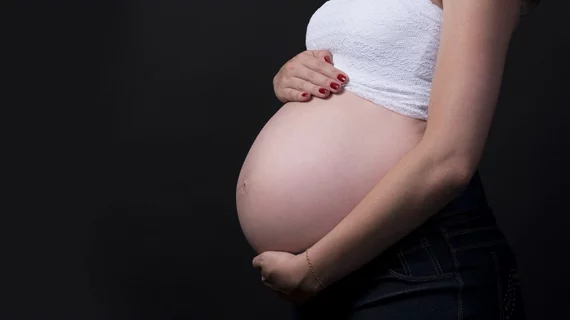Prenatal MRI reveals placental damage caused by COVID
Women who contract COVID during pregnancy should undergo placental imaging soon after testing positive for the virus, according to new research [1].
Using prenatal MRI scans, a team of researchers with the Medical University of Vienna in Austria recently uncovered evidence suggesting that women who contract COVID during pregnancy could be subject to placental damage, including hemorrhages. The team explained that while, in general, any COVID diagnosis raises risks of fetal harm during pregnancy, fetuses of women who have been diagnosed with a pre-Omicron variant of the virus are most at risk of developmental impairment.
"Infections with pre-Omicron variants, such as Delta, led to significantly greater damage in the form of vascular events such as blood clots or bleeding than with the Omicron subvariants currently circulating through the population," explained lead author Patric Kienast of Department of Biomedical Imaging and Image-guided Therapy.
The team analyzed a total of 76 fetal MRI exams for the research. The scans were divided evenly into two groups: one group of women with confirmed COVID infections and one group of healthy controls. In the COVID group, 20 women were infected with pre-Omicron variants, while 18 were infected with Omicron. On average, scans were completed within 83 days of patients’ positive PCR test.
Both COVID groups displayed abnormalities in the form of a globular placenta, but the pre-Omicron group tended to have more serious findings. In that group, researchers observed significantly thickened placentas with more frequent lobules and hemorrhages. Fetal growth restriction was also observed in 20% of that group.
So why the difference in damage between the COVID groups? The experts believe that this finding can be attributed to COVID vaccines.
Pre-omicron variants more frequently resulted in severe COVID cases. As vaccination rates have increased, severe COVID cases have decreased. The authors noted that the imaging used in their study echoed that sentiment, as those who were unvaccinated were more likely to develop placental abnormalities in comparison to their vaccinated peers.
The team noted that although fetuses rarely test positive as a result of their mother contracting COVID, placentas are still subject to potential complications. As such, they “should be examined as soon as possible after testing positive using prenatal imaging techniques," the team advised.
This study was published on Jan. 21 in The Lancet Regional Health - Europe.

